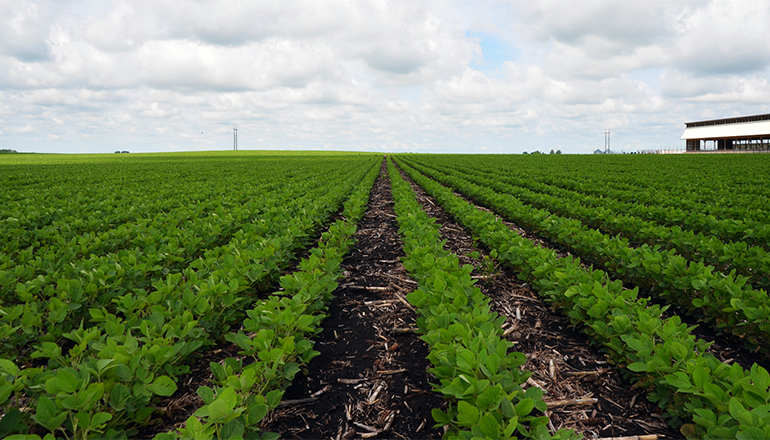The University of Missouri Extension is looking for farmers to participate in fertilizer trials as part of the “MU Certified” Strip Trial Program.
MU Extension nutrient management specialist John Lory, who leads the program, said this year’s farmer panel approved trials focused on improving the management of fertilizer in corn and soybean rotations, wheat, and forages. “The farmer panel was particularly interested in sulfur and potassium response in corn and soybeans,” Lory said.
The strip trial program uses on-farm research to help farmers improve profits and maintain the environment. A local extension person will work with the farmer to layout a trial that works with the farmer’s equipment and then will provide guidance throughout the trial. After harvest, the farmers provide yield maps that will be analyzed to determine fertilizer effects on yield.
The list of 2021 trial options includes sulfur response in corn-soybean rotation, potassium response in corn-soybean rotation, phosphorus response in corn, nitrogen response in corn, nitrogen timing in corn or wheat, and nitrogen response in forages.
Lory says the strip trial program can only work with farmers who can provide yield maps for grain harvest, and an as-applied map for fertilizer is preferred. All trials must be replicated at least four times on eight to 12 strips.
The farmer controls all other management choices for the crop, including crop varieties, other fertilizer, plant protection choices, and harvest.
Drones will survey fields during the growing season, and there will be targeted fall soil sampling if sulfur, potassium, and phosphorus increase yield. Every fall the program sends the farmers results from their farms and from other trial participants.
Fertilizer strip trial options for planting this fall
Sulfur response in corn-soybean rotation
Lory seeks farmers to compare the sulfur fertilizer rate with a no-S control strip. The preferred source is fertilizer-grade gypsum (calcium sulfate). The farmer decides when to apply the fertilizer.
Potassium response in corn-soybean rotation
This trial compares the potassium fertilizer rate with a no-K control. The preferred source is potassium chloride. The farmer chooses when to apply up to two rates.
Phosphorus response in corn
The strip trial program compares phosphorus fertilizer with a no-P control. The preferred source is MAP or DAP, and the farmer controls timing. “This trial is more complicated because we must adjust for nitrogen in P fertilizer,” says Lory.
Nitrogen response in corn
This tests the farmer’s N rate against more or less N (typically 30 pounds). Strips may be either pre-plant or side-dress applications. The farmer chooses the timing, N source, and placement.
Nitrogen timing in corn or wheat
This more complicated trial tests the effect of delaying all or some of the nitrogen application. Farmers will test single early application versus a split application, or a split application versus a late application, Lory says.
Nitrogen response in forages
This tests the farmer’s N rate against more or less N (typically 30 pounds). The farmer chooses the timing, N source, and placement. These trials require specialized equipment to monitor pasture growth rates.
Strip trials involve field-length strips laid out side by side. The simplest trials will have side-by-side strips with and without fertilizer. The on-farm trials compare management practices that are replicated at least four times (more is better). MU Extension specialists provide individual consultations to compare treatments on the farmer’s land.
Fertilizer trials are only one option supported by the “MU Certified” Strip Trial Program. There are also trials evaluating the management of cover crops, fungicide response in soybeans, and seed treatments in soybean.
MU Extension, Missouri Soybean Merchandising Council, Missouri Corn Merchandising Council, and Missouri Fertilizer Board fund the “MU Certified” Strip Trial Program.
If interested, contact your local MU Extension agronomist or email [email protected]. For more information, visit striptrial.missouri.edu.







